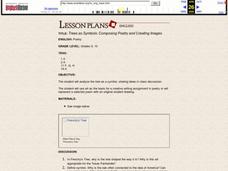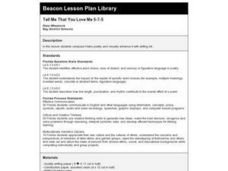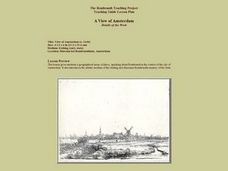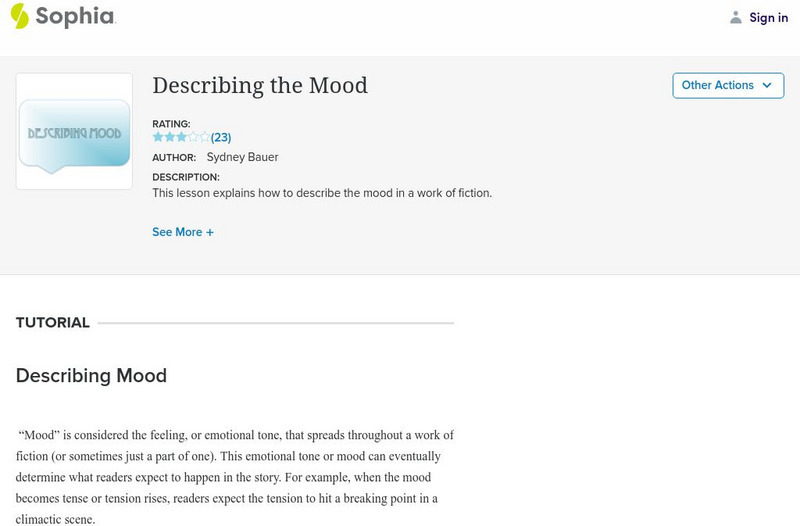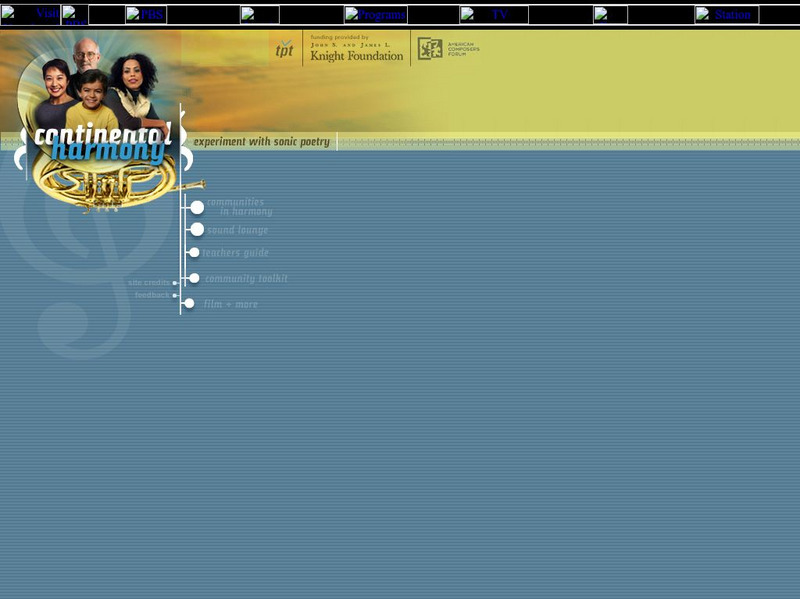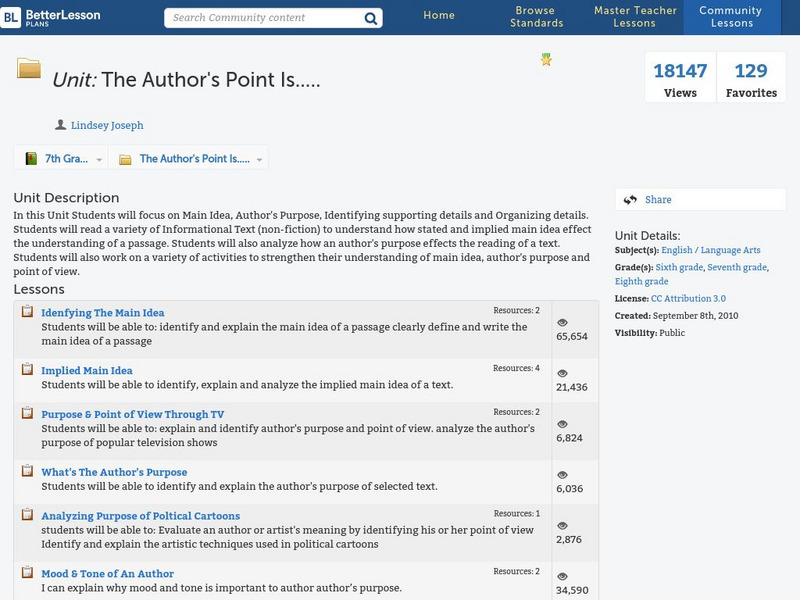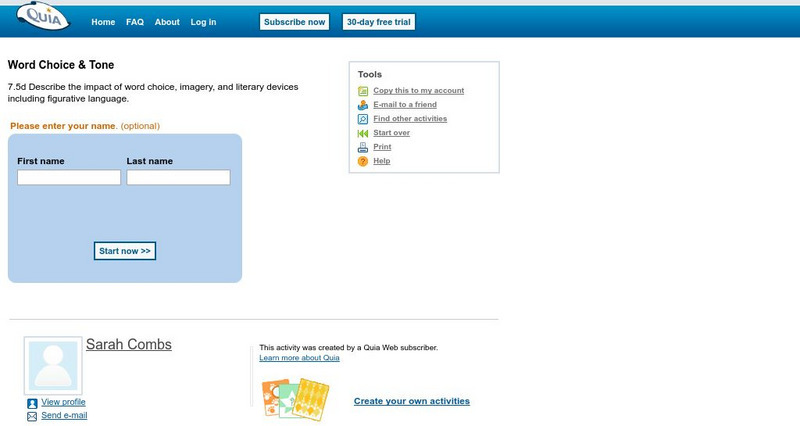Curated OER
Trees as Symbols: Composing Poetry and Creating Images
Students analyze the tree as a symbol, sharing ideas in class discussion. They use art as the basis for a creative writing assignment in poetry or represent a selected poem with an original student drawing.
Curated OER
Tell Me That You Love Me 5-7-5
Students listen to several examples of Haiku poetry and discuss the strict format. Then students create and edit their own Haiku poems and enhance them with ink designs.
Curated OER
Three Chicago Painters: Visual Thinking Skills Activity
Students discuss the paintings of three Chicago painters. They are asked to observe their work and comment on it.
Curated OER
A View of Amsterdam
High schoolers are introduced to the process of etching during Rembrandt's time. Using a painting of Rembrandt, they answer questions related to it and how the painting makes them feel. They define and demonstrate perspectives and...
Curated OER
Connecting Rembrandt and J.R. Tolkien
Students trace continuous thread of art from the 17th to the 20th century. They compare and contrast the painter Rembrandt with the writer Tolkien. They prepare and deliver an individual presentation.
Curated OER
Charlotte's Web Venn Diagram
Students, together as a class, construct a Venn diagram of characteristics they see in two classmates. Then, they independently create another Venn diagram comparing/contrasting two characters from the story Charlotte's Web. They share...
Curated OER
Two Haiku
Eighth graders, in pairs, discuss what they already know about Haiku poetry. They try to remember the rules, history, and focus of traditional Japanese Haiku. they read more examples of Haiku and then write and illustrate their own...
Sophia Learning
Sophia: Describing the Mood
Information that can be read or listened to that describes how to identify and write about the mood of a piece. Examples are provided using the story of "Tell Tale Heart" by Edgar Allen Poe.
PBS
Pbs Learning Media: Literary Elements and Techniques Collection
These animated shorts introduce or review literary elements and techniques like theme, setting, figurative language, characterization, and conflict. They can be used when students are just learning how to identify the most commonly used...
University of California
Berkeley Art Museum and Pacific Film Archive: Cotton Pickers by Romare Bearden
The Berkeley Art Museum publishes an activity based on Romare Bearden's The Cotton Pickers that helps young learners identify the geometric shapes used in the composition. Also discusses the artist's use of color to evoke mood.
PBS
Pbs: Continental Harmony
PBS presents several activities and lesson plans that cover the concepts of identifying different forms of music, learning about musical imagery, writing in response to music, and creating lyrics. The Sound Lounge has many interactive...
Better Lesson
Better Lesson: Unit: The Author's Point Is
Students will focus on Main Idea, Author's Purpose, Identifying supporting details and Organizing details. Students will read a variety of Informational Text (non-fiction) to understand how stated and implied main idea effect the...
E Reading Worksheets
E Reading Worksheets: Tone Worksheets and Lessons
This learning module provides remediation and extra practice with identifying an author's tone. Reinforcement for understanding author's tone is provided through the five different worksheets and a mini-lesson. CCSS.ELA-Literacy.CCRA.R.4
Quia
Quia: Word Choice and Tone Quiz
This interactive series of questions assesses students' understanding of the impact of word choice on the tone of a passage. Students will identify the correct tone used in sentences, paragraphs, and poems.
New York Times
New York Times: At Hussein's Trial
Explores Saddam Hussein's trial at the beginning. Identifies different strategies that the defense team may use and the mood of the court. 2 July 2004)
Other popular searches
- Identifying Mood and Tone
- Identifying Mood in Reading
- Identifying Mood Tone
- Identifying Mood in Poetry
- Identifying Mood in Passages
- Identifying Mood Worksheet
- Identifying Mood Inpoetry


